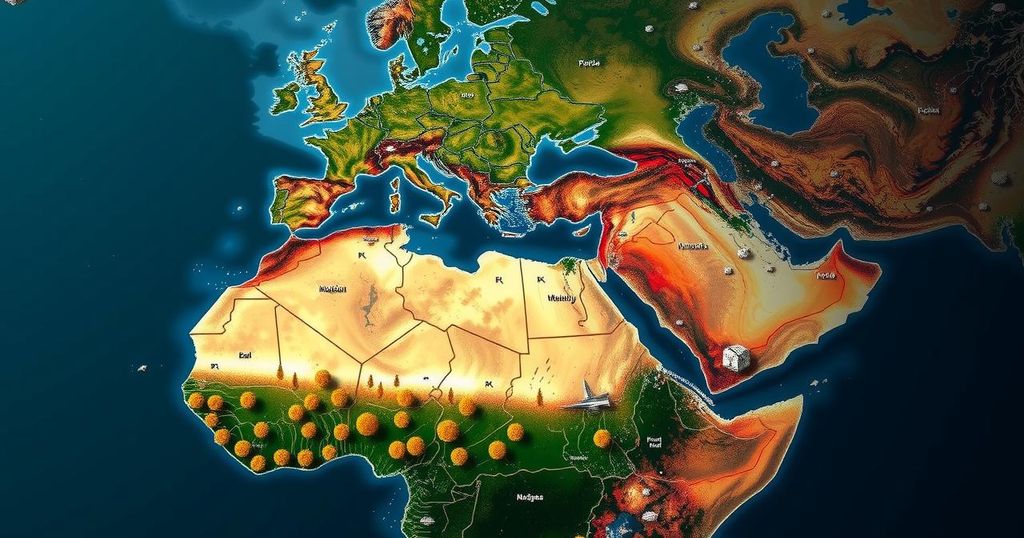Global news
AFRICA, AFRICA CORPS, DAVID LEWIS, DEFENCE, EQUATORIAL GUINEA, EUROPE/ASIA, FI, FILIPP LEBEDEV, GEOPOLITICS, GI, GIULIA PARAVICINI, INTERNATIONAL RELATIONS, KREMLIN, MALABO, MILITARY, MILITARY SUPPORT, MOSCOW, OBIANG, REGIONAL SECURITY, RUSSIA, TASS, TE, TEODORO OBIANG NGUEMA MBASOGO, VLADIMIR PUTIN, WEST AFRICA, WILL BROWN
Leila Ramsay
0 Comments
Russia Expands Military Presence in Equatorial Guinea Amidst Declining Western Influence
Russia has dispatched up to 200 military instructors to Equatorial Guinea to bolster regime security, marking an expansion of its influence in West Africa amid declining Western presence. This strategy aligns with a broader pattern of Russian military interventions across the region, showcasing a shift in geopolitical dynamics.
Russia has recently reinforced its military presence in Equatorial Guinea by deploying up to 200 military instructors to bolster the protection of President Teodoro Obiang Nguema Mbasogo’s regime. This strategic move, confirmed by multiple diplomatic sources, occurs in the context of an increasing Russian influence across West Africa, aiming to counter Western sway and secure economic opportunities in sectors such as mining and energy. The instructors are reportedly training elite presidential guards in the nation’s capital, Malabo, and in Bata, evidencing a notable shift in geopolitical dynamics, with Russia capitalizing on the region’s volatile landscape following setbacks in its operations, particularly in Mali. President Obiang, who has ruled since 1979, is seen as seeking to ensure stability and security for his ruling family as he prepares his son Teodorin as a potential successor. The presence of these Russian instructors, possibly affiliated with the elite paratrooper units or the Kremlin-backed Africa Corps, points to a broader pattern of opportunistic expansion by Moscow in a realm traditionally influenced by Western interests. Equatorial Guinea, despite its past relations with U.S. energy firms, appears to be falling within the orbit of Russian military support, as demonstrated by recent discussions regarding opportunities in the oil and gas sector.
The geopolitical landscape of West Africa has seen a notable shift with Russia asserting its influence in countries like Equatorial Guinea while Western powers have gradually reduced their presence. Equatorial Guinea, an oil-rich nation of 1.7 million inhabitants, has historically drawn significant investment from U.S. energy firms, which have since decreased their involvement. President Obiang’s government has faced various challenges, including coup attempts and allegations of corruption surrounding his heir. In this context, Russia’s deployment of military instructors serves not only as a means of protecting the regime but also as part of an overarching strategy to bolster its presence amidst declining Western influence.
In conclusion, Russia’s deployment of military instructors to Equatorial Guinea exemplifies a strategic maneuver to expand its influence in West Africa and reinforce the existing regime amid waning Western interests. The ongoing training of elite guards underscores Moscow’s ambitions in the region, further complicating the geopolitical landscape and exemplifying the growing assertions of military power by Russia in Africa. As the situation evolves, the implications for both regional stability and international relations remain significant.
Original Source: www.usnews.com




Post Comment